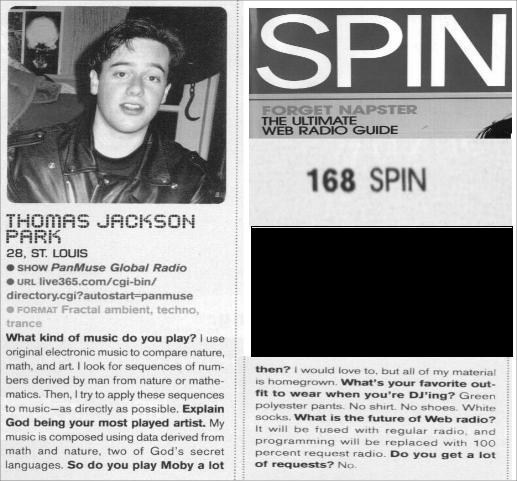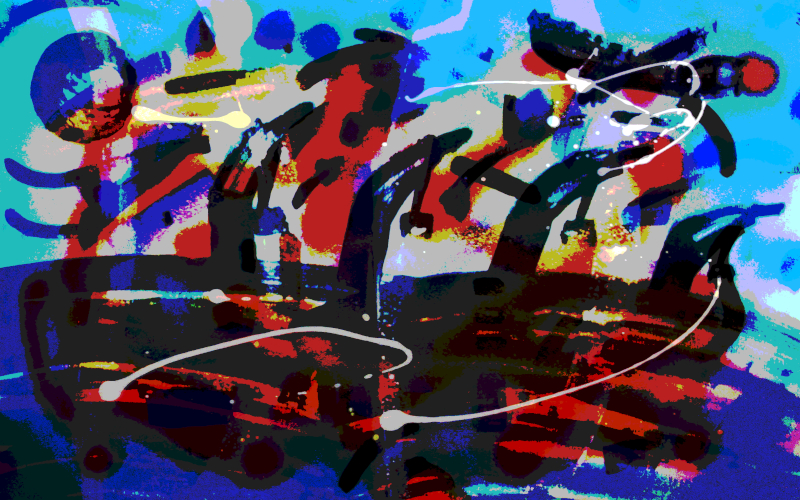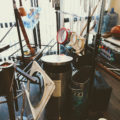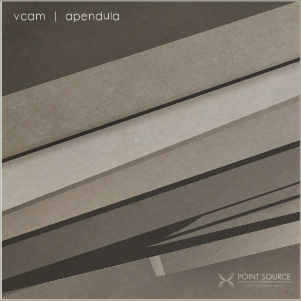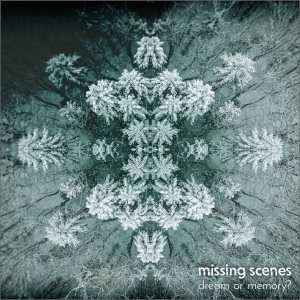Writing music for netlabels has been a main focus for my projects. My own netlabel, Treetrunk Records, focuses on music composed using alternative techniques. I have also extensively released on netlabels such as Webbed Hand, Petroglyph Music, Camembert Electrique, and others. As my goals became more proportional, I let go of my desire to make music mainly for profit.
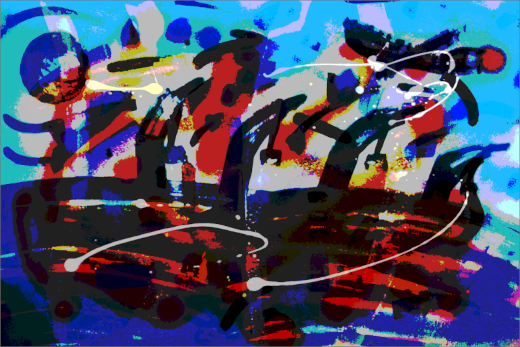
“I Could Have Been A Contender.”
Fringe Artists And Popular Success
When I began composing music over two decades ago, I had a lot of ambition. I wanted to achieve popular success. Whetting my whistle were some early achievements, such as appearing in Spin Magazine (November 2000). and being featured at MP3.com. These breaks gave me hope that I would be a recognized and popular artist. About 6 months later, and not much had developed. I had no offers from major labels, no live tours, and my friends were starting to ask me to stop spamming them with my music news. As hot air leaked steadily from my early achievements balloon, I found a way to land safely. Around the turn of the millennium, I began composing music for netlabels.
Since then, writing music for netlabels has been a main focus for my projects. My own netlabel, Treetrunk Records, focuses on music composed using alternative techniques. I have also extensively released on netlabels such as Webbed Hand, Petroglyph Music, Camembert Electrique, and others. As my goals became more proportional, I let go of my desire to make music mainly for profit.
In time I settled into a more accessible pool of contemporaries: the netlabel artists. They became my Scenius, (as defined by Brian Eno). These were the musicians seeking related aesthetics and often using similar methods.
Netlabel artists are a pretty diverse group, Some are fringe types, super bright, suffering from addictions, mental health issues, and/or pressured away from mainstream culture due to gender, race, or related traits. Some are rather quite mainstream in profile. Either way, they are people who are willing to create substantial output for free or for very little money.
Netlabel artists tend to take on musical challenges, such as working in a timely manner on a particular theme. For example, when Damo Suzuki of CAN passed away, a large number of free or inexpensive tribute net releases were quickly created. CAN is big in the netlabel setting, and artists are willing to turn their energy and inspiration into music for little compensation.
Many netlabel musicians are very innovative ::
Now and then a gripe comes up in netlabel culture about success. Why, a musician might ask, in some forum or another, am I not as popular as Taylor Swift, or even acts like Autechre or Moby? Many netlabel musicians are very innovative. There are some real jewels buried in the dirt and grit of cc culture. Faced with the popular success problem, I often reply with this question:
Are less popular artists willing to emulate the kinds of music that are in the charts? Here in Saint Louis, New Country, a certain kind of marketable Hip Hop, and Classic Rock, as well as Top 40 Pop, seem to be successful genres. To have mass appeal, a musician would need to write in one of these styles, and to do so in a contemporary mode. Considerable financial investments would be required. A studio would be needed, and mastering, too. Label connections would be essential, and a willingness and ability to go on live tours.
In short, to really consider what fame is, is it something an artist would indeed consider desirable? Or is it better to have freedom to express and compose as a person wants, using their own styles and methods? I am told now and then big players dip into cc culture in search of new ideas. I also recall that all of my difficulties as an artist have emerged when I have tried to make money from a release, and it has failed to generate the expected revenue. My pivot has always been the same—to go back to my own methods of composition, production and release, and not to primarily pursue money.
Do you really want to be big? Are you ready to play the success game, and to transform your ideas into something that sells to the masses? Is the question really that clear that a person would, having considered what would be necessary to make it happen? If musical success is like living in California, is a person ready to risk the glut, pollution, forest fires, earthquakes, and tremendous inflation, to share a crowded beach for a few hours a week?
Links ::
- Thomas Park (aka AutoCad) :: Logarithm (Spin Magazine era)
- V/A :: Far Afield: A Webbed Hand Compilation
- V/A :: The March Equinox (Petroglyph)
- V/A :: Ice Heart Father (Camembert Electrique)
Learn more about Thomas Park at Archive.org.
